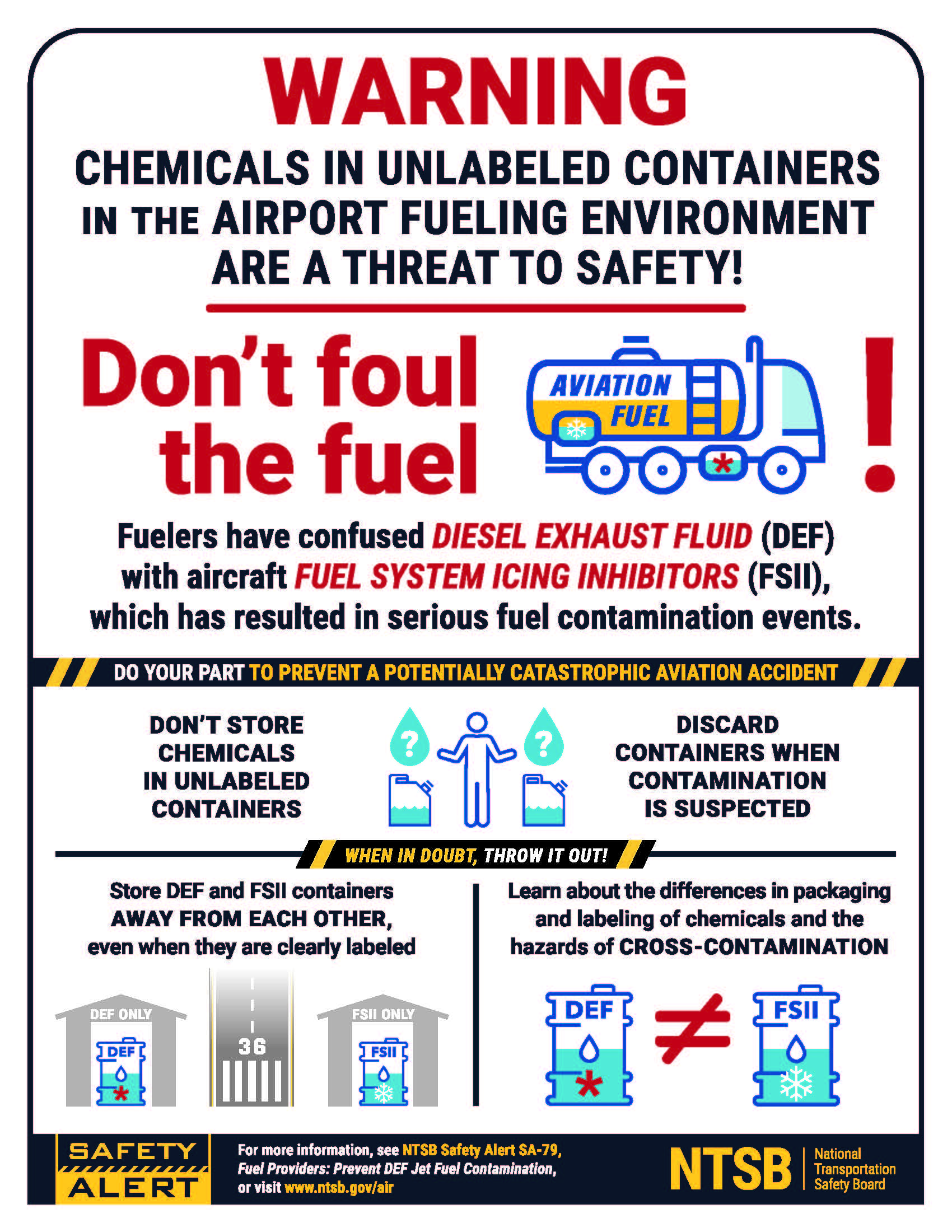WASHINGTON (July 24, 2019) — The National Transportation Safety Board issued Wednesday Safety Alert SA-079 warning providers of jet fuel to take measures to prevent contamination of jet fuel by diesel exhaust fluid.
Diesel exhaust fluid (DEF) is required for all new on- and off-road, diesel-powered vehicles, making the presence of the clear, colorless liquid more prevalent at airfields as refueling trucks are replaced. When introduced into a diesel-powered vehicle’s exhaust stream, DEF is beneficial in the reduction of nitrogen oxide emissions. However, when DEF is introduced into jet fuel, a chemical reaction occurs forming crystalline deposits that can accumulate on filters, engine fuel nozzles and fuel metering components, resulting in a loss of engine power.
When improperly stored in unmarked containers, DEF is a clear, colorless liquid that can be mistaken for other liquids found on the airfield, including fuel system icing inhibitors (FSII). Both DEF and FSII can be purchased in bulk and transferred to smaller containers for ease of use. Under these circumstances, unlabeled containers and common storage areas increase the likelihood of confusing these liquids.
The NTSB wants fuel providers to ensure they store all chemicals in labeled containers and that they add a “NOT FOR AVIATION USE” label to all DEF containers.

(The NTSB created a safety poster to supplement the information contained in its Safety Alert 079,
to warn against the inadvertent introduction of DEF into aviation fuel. NTSB graphic.)
Aviation fuel contamination of all types is a longstanding safety issue and inadvertent introduction of DEF into aviation fuel is the latest iteration of the issue. The NTSB is currently investigating a May 2019 incident in which a Cessna C550 experienced a total loss of engine power to both engines during an air medical flight. The crew diverted the plane to a nearby airport and safely landed. Analysis of fuel samples, fuel system filters and fuel screens from the airplane indicated the presence of urea, the primary chemical found in DEF. During the investigation, an airport lineman reported the day before the incident he combined two partially filled containers. Further investigation revealed that one container held FSII and the other held DEF, which he mistook for FSII. He subsequently added the combined fluid to the fuel truck’s FSII reservoir and fueled the Cessna the next day with 480 gallons of the Jet A fuel containing the FSII and DEF mixture. Two other instances of the inadvertent introduction of DEF into aircraft fuel tanks, after being combined with FSII, have been documented. Because both instances were identified before the aircraft attempted flight, neither event was investigated by the NTSB.
To report an incident/accident or if you are a public safety agency, please call 1-844-373-9922 or 202-314-6290 to speak to a Watch Officer at the NTSB Response Operations Center (ROC) in Washington, DC (24/7).